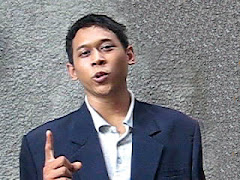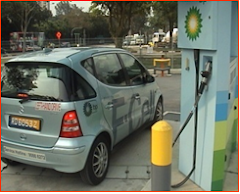The North’s official news agency, KCNA, said “The Democratic People’s Republic of Korea successfully conducted one more underground nuclear test on May 25 as part of the measures to bolster up its nuclear deterrent for self-defense in every way as requested by its scientists and technicians.”
The test was safely conducted “on a new higher level in terms of its explosive power and technology of its control,” the agency said. “The results of the test helped satisfactorily settle the scientific and technological problems arising in further increasing the power of nuclear weapons and steadily developing nuclear technology.”
Word of the test sent a shudder through Asian financial markets and clearly caught South Korea and the United States off guard. The news hit just as South Korea’s government and people were mourning the suicide of former President Roh Moo-hyun. And hours after the test was reported, South Korean state media reported that the North had fired a short-range missile.
The nuclear test also came against a backdrop of uncertainty about North Korea’s reclusive leader, Kim Jong-il, and speculation about who might succeed him. Mr. Kim suffered a stroke last August, which prompted him to step up preparations to transfer power to one of his three known sons. Analysts believe the favorite son is his youngest, Kim Jong-un, who is in his mid-20s.
North Korea conducted its first nuclear test on Oct. 9, 2006, which was considered something of a bust by South Korean and American officials. If the North’s second test was more of a success, it could mean that North Korea has bolstered its atomic weapons capabilities — and its leverage over the United States, which has sought to denuclearize the North.
In Washington, the Obama administration had a cautious initial reaction to the news early Monday. “We are aware of the reports of a nuclear test by North Korea,” said a senior State Department official who spoke on condition of anonymity because the department was still gathering information. “We are consulting with our allies. Once we have established the facts, we will have more to say.”
Hints that the North had conducted a test first emerged Monday morning when South Korean authorities detected an artificially triggered earth tremor emanating from the area of Kilju, in northeast North Korea, said Lee Dong-kwan, spokesman of the office of President Lee Myung-bak of South Korea.
The spokesman said “intelligence officials of South Korea and the United States are analyzing the data and closely monitoring the situation.”
Earlier Monday, North Korea announced that Kim Jong-il had sent a message expressing "profound condolences” to the widow of Mr. Roh, who had pursued a more conciliatory policy toward the North. It remained unclear whether Mr. Kim would send a delegation to Mr. Roh’s funeral slated for Friday.
Relations between the Koreas have plunged since Mr. Roh’s successor, Mr. Lee, took office in February 2008, promising to reverse the "sunshine policy" of promoting political reconciliation with Pyongyang with economic aid.
Agreements resulting from a 2007 summit meeting called for the South to spend billions of dollars to help rebuild the impoverished North’s dilapidated infrastructure. Mr. Lee believed that such aid must be linked to improvements in the North’s human rights record and the dismantling of its nuclear facilities.
North Korea has viciously attacked Mr. Lee, calling him a “national traitor,” cutting off official dialogue and reducing traffic across the countries’ heavily armed border.
North Korea had given some advance notice before its first nuclear test, in 2006, and that initial test also was conducted in the northeast.
North Korea had recently threatened to conduct a second nuclear test, citing what it called Washington’s “hostilities.”
The new test comes against a backdrop of heightened tensions between North Korea and the United States, which keeps a heavy military deployment in South Korea.
Two American journalists are scheduled to be tried June 4 in North Korea, charged with illegal entry into the North and “hostile acts,” and that case in particular has aggravated tensions between Pyongyang and Washington. The relationship was already strained by the North’s launching of a long-range rocket on April 5.
After that launch, Washington pressed the United Nations Security Council to tighten sanctions on the North. In retaliation, Pyongyang expelled United Nations nuclear monitors, while threatening to restart a plant that makes weapons-grade plutonium and to conduct a nuclear test.
This month, one day after an American diplomat offered new talks on North Korea’s nuclear program, the North said it had become useless to talk further with the United States.
“The study of the policy pursued by the Obama administration for the past 100 days since its emergence made it clear that the U.S. hostile policy toward the D.P.R.K. remains unchanged,” the North Korean Foreign Ministry said, using the initials for the country’s official name, the Democratic People’s Republic of Korea.
In comments carried by KCNA, the ministry said: “There is nothing to be gained by sitting down together with a party that continues to view us with hostility.”
The rebuff came as Stephen W. Bosworth, the American special envoy on North Korea, began a trip to Asia with a fresh offer of dialogue. The North’s vow to “bolster its nuclear deterrent” came just hours before Mr. Bosworth was due to arrive in Seoul.
The North’s first nuclear test was widely condemned, but it created a new urgency in the six-party talks that had failed to prevent the blast. The parties to the talks are the two Koreas, the United States, China, Japan and Russia.
In February 2007, Washington agreed to ease sanctions against banks dealing with Pyongyang, and North Korea concurrently agreed to a process that would lead to the dismantling of its nuclear weapons program. North Korea would receive deliveries of fuel oil in exchange for certain verifications that it was ending its program.
But last December the process collapsed when North Korea rejected the verification measures being sought by the Bush administration.
Mark McDonald contributed reporting from Hong Kong and Mark Landler from Washington.
news source : http://www.nytimes.com/2009/05/25/world/asia/25nuke.html?_r=1&ref=todayspaper






.png)











0 Comments:
Post a Comment